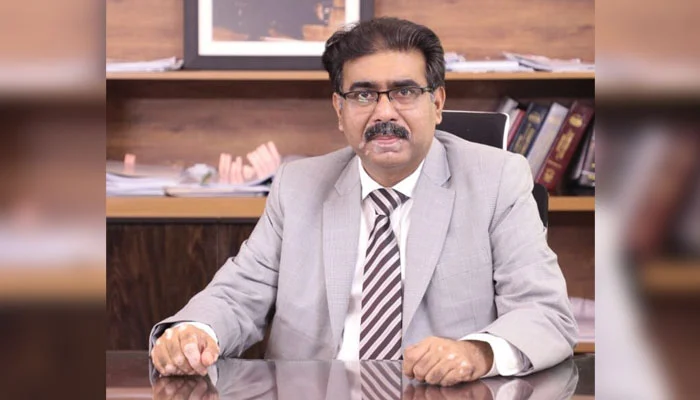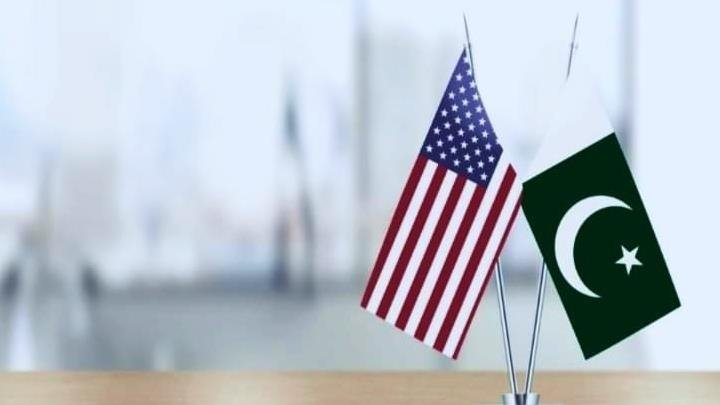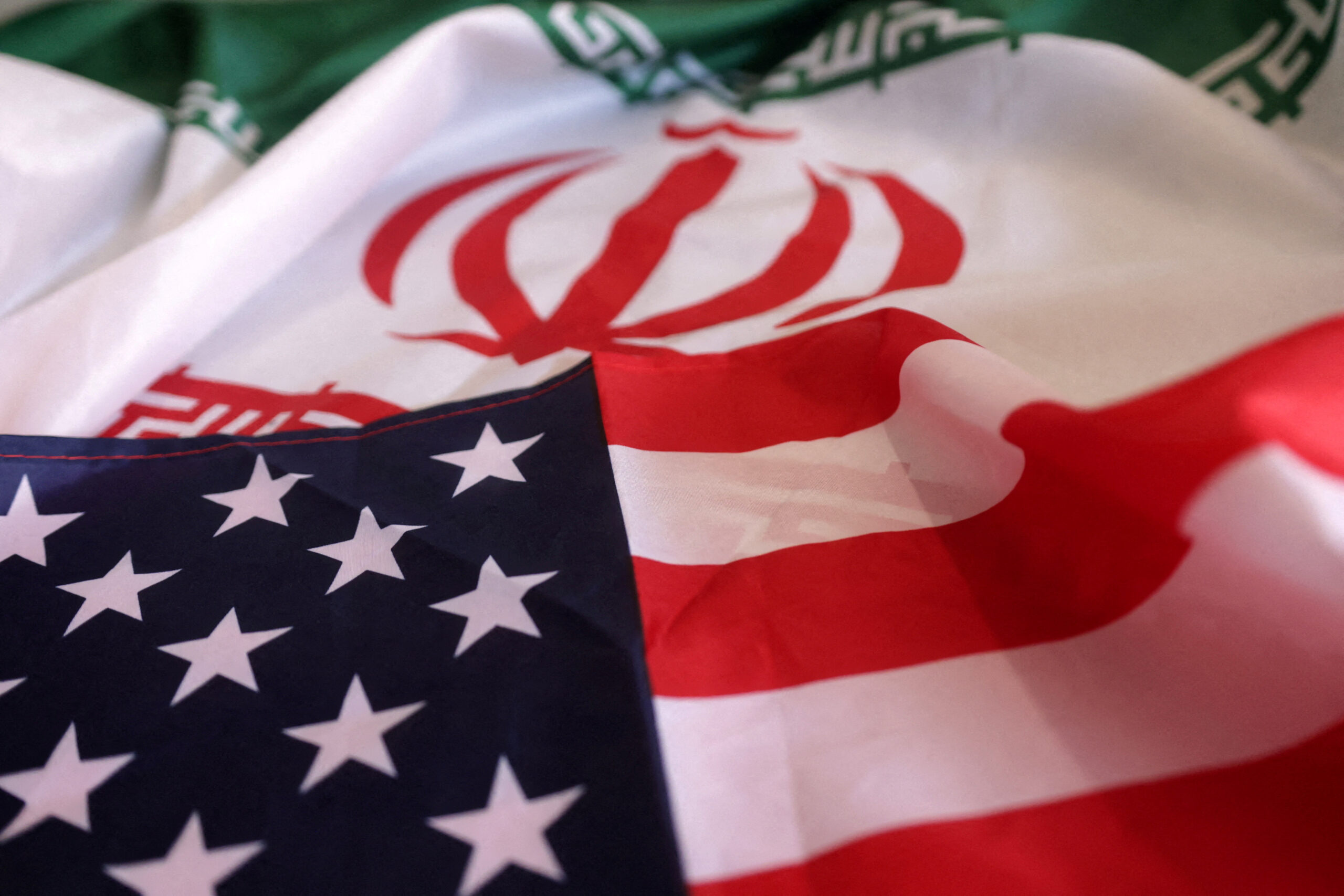Zafar Iqbal
In a moment of international drama that may have brought a wry smile to Russian President Vladimir Putin’s face, Ukrainian President Volodymyr Zelensky found himself publicly chastised by two of the most powerful individuals in the United States—President Donald Trump and Vice President JD Vance—during an Oval Office meeting on Friday. This encounter, initially thought to be about securing a minerals deal, soon became a striking display of power, humiliation, and geopolitical manipulation, leaving the Ukrainian leader exposed and vulnerable in front of a global audience.
Zelensky’s primary objective in Washington was clear: he sought stronger security guarantees to protect Ukraine in its ongoing war against Russia, which had invaded the country in February 2022. However, what was intended as a routine diplomatic visit turned into a far more uncomfortable confrontation. While Zelensky came looking for concrete military and financial backing, what transpired in the White House pointed to something far more critical: the shifting dynamics of US foreign policy and waning American support for Ukraine’s prolonged conflict with Russia.
The war, now entering its fourth year, has taken a considerable toll on Ukraine. In the beginning, Ukraine was buoyed by overwhelming international support, especially from the United States and its NATO allies. But as the years dragged on, the appetite for continued support, particularly from Washington, began to diminish. Despite President Joe Biden’s commitment to aiding Ukraine, the signs of diminishing enthusiasm were already apparent. The introduction of Donald Trump back into the political fold only exacerbates this sentiment, with Trump openly expressing a desire to end the war and push for a peace deal between Ukraine and Russia. His position has grown increasingly vocal, signaling that the US may no longer wish to act as the sole defender of Ukraine’s sovereignty.
The encounter in the Oval Office was intended to be a diplomatic gesture, but it quickly deteriorated into a public spectacle of accusations, insults, and tension. During the meeting, Vice President JD Vance suggested that the “path to peace” might involve diplomatic negotiations, to which Zelensky swiftly rejected the notion. The Ukrainian president pointed out that engaging in diplomacy with Russian President Vladimir Putin would lead to the destruction of his country, citing Russia’s continuous aggression since 2014. This response was not what Trump or Vance wanted to hear.
Pl watch the video and subscribe to the YouTube channel of republicpolicy.com
The situation quickly escalated, with Trump accusing Zelensky of being ungrateful and disrespectful. He criticized Zelensky for “gambling with millions of lives” and claimed that Ukraine had no chance of winning the war without the backing of the United States. Trump’s rhetoric was brutal—he told Zelensky that without the US, Ukraine would have no chance of survival and that Zelensky’s tough stance was only possible due to the US’s unwavering support. This public dressing down was a stark reminder of the power dynamics at play, where a superpower could forcefully assert its dominance, making its allies submit to its terms.
The meeting ended in humiliation for Zelensky. Not only did he leave without securing a deal regarding Ukraine’s coveted mineral resources, but he also walked away with no assurances of continued US support for his country’s war efforts. The final blow came with Trump’s social media post, telling Zelensky to “come back when you’re ready for peace,” effectively cutting off the potential for any future diplomatic engagement in a manner that was demeaning and dismissive.
This public humiliation of an ally is unprecedented in recent US history, and it highlights a disturbing trend in American diplomacy under the Trump administration. The United States has long been known for its use of power in foreign policy, but Trump’s approach strips away any pretense of diplomacy or mutual respect. There are no longer attempts to disguise America’s imperialistic approach with appeals to human rights or democracy—Trump’s stance makes it clear that international relations are now dominated by raw power.
However, this is not the first time that the US has publicly humiliated a partner or manipulated global affairs for its own gain. The history of US foreign policy is littered with instances where countries, from Pakistan to Latin American states, have been subjected to harsh treatment by Washington when their interests were no longer aligned with American goals. But under Trump, the thin veil of diplomatic niceties has been torn away, revealing the true nature of America’s global position: one where power, not diplomacy, dictates the course of events.
The situation in Ukraine is particularly tragic because it underscores the inherent contradictions in US foreign policy. Ukraine, a country that became embroiled in conflict largely due to the West’s push for NATO expansion, is now left in the uncomfortable position of relying on the same powers that helped provoke its situation. Zelensky and his people find themselves caught in a deadly geopolitical struggle, with little choice but to hope for support from the very nations that put them in this mess. Yet, as the years drag on, it becomes increasingly clear that the US is not prepared to keep its commitment to Ukraine indefinitely, and in fact, Trump’s rhetoric suggests that Ukraine may be left to negotiate its future with Russia on its own terms.
Beyond Ukraine, this situation serves as a stark reminder of the dangers of empire-building and the false promises often made to smaller nations caught in the geopolitical crossfire. As history has shown, empire is ultimately incompatible with justice and humanitarianism. The US, while projecting itself as a global leader dedicated to spreading democracy and promoting human rights, has consistently acted in its own self-interest, often at the expense of those it claims to help. Zelensky’s humiliation in the Oval Office is a reflection of this harsh reality, where smaller nations are expected to fall in line with the larger geopolitical ambitions of their more powerful allies.
For the rest of the world, this episode serves as a sobering lesson about the true nature of international relations. The US, despite its claims to champion freedom and democracy, operates primarily as an empire seeking to maintain and expand its influence through power, not diplomacy. For those who continue to hope for the US to act as a benevolent force on the global stage, the events of Friday’s Oval Office meeting should serve as a wake-up call. The US is not a savior—it is a power to be reckoned with, and its allies must understand this fundamental reality.
In the case of Ukraine, the road ahead seems uncertain. As the war continues to ravage the country, Zelensky and his people will need to navigate a complex and shifting geopolitical landscape, where promises of support are becoming increasingly hollow. The events of the past week should serve as a powerful reminder that global politics is not about principles but about power, and that smaller nations like Ukraine must be prepared to face the harsh realities of this world.
In conclusion, the public humiliation of Zelensky in the US not only highlights the precarious position of Ukraine in its struggle against Russia but also reflects the broader realities of modern international relations. The US, under Trump, has shed any pretense of moral superiority, revealing the true nature of global power dynamics. The world must now acknowledge the risks of relying on superpowers like the US and rethink the global order where might often trumps right. For Ukraine, the fight for survival continues, but the path forward is fraught with challenges and harsh geopolitical realities.

















